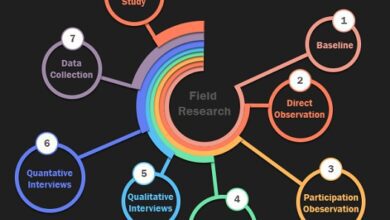Explanatory questions examples/types/definition
Explanatory questions
Explanatory questions try to explain the causes of something. For this, it is necessary to study the relationship between different variables. However, it is not enough to find correlations between variables; To answer these questions it is also necessary that the cause precedes the consequence and that there is no third variable responsible for the correlation. In a “theory”, causes and consequences are connected by a “causal mechanism.” Explanatory questions examples
These questions are distinguished from the others because they are explanatory research questions .
Explanatory question types
There are different explanatory questions, among them it stands out Explanatory questions examples
Explanatory research question : It refers to a question that has not been asked before or that has been asked on a few occasions. Explanatory research questions are intended to answer or pursue “gaps” in our knowledge and understanding.
Explanatory quantitative questions : Structurally, explanatory quantitative questions must contain an independent and a dependent variable and must raise questions about the relationship between these variables. Explanatory questions examples
Example of explanatory questions
The questions are designed to determine the cause of a problem. They usually start with “why”, but can also contain question words such as “what” or “how”. Explanatory questions examples
These are some examples:
- What is the reason for the high rate of illnesses in the seat of Parliament?
- Why does any substance melt at a certain temperature?
- Why do the leaves change color in autumn?
Example of a quantitative explanatory question
- What is the relationship between [independent variable] and [dependent variable] for [target population]? Explanatory questions examples
You must play with the wording of your questions, reviewing and adapting them as you see fit. The goal is to make sure that the research question reflects what you really want to know in the study.

